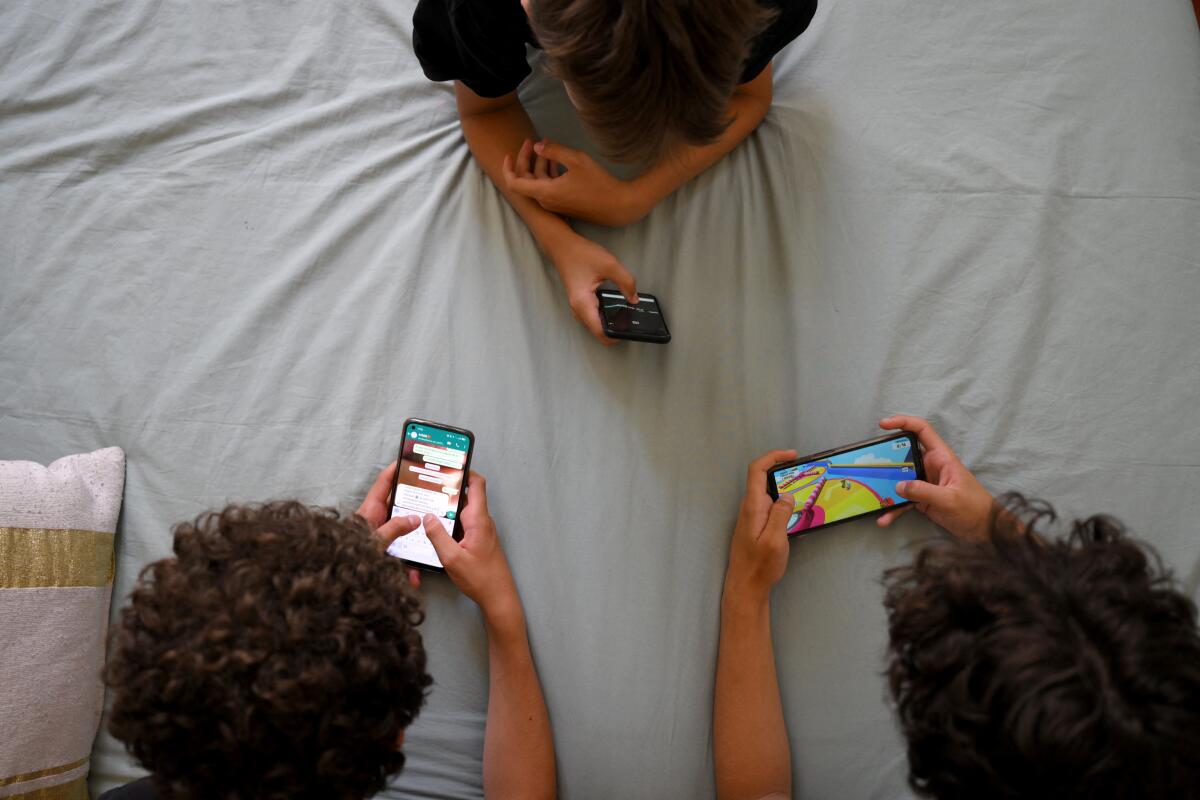Letters to the Editor: Your teen’s phone and Cheetos addiction isn’t their school’s problem to fix

To the editor: As a high school teacher, I see the effects that the proliferation of Flamin’ Hot Cheetos and smartphones have on our kids’ minds and bodies, just as columnist Robin Abcarian does as a parent. However, I find her gloomy outlook shortsighted.
As educators whose students are easily distracted, our question is always, who is paying for this? Where does the child get the money for snacks? Who pays the phone bill?
I see my students for one hour each day. When I’m away from the classroom, I contemplate new ways of engaging their developing minds. I don’t see smartphones as a distraction; they’re competition.
As for regulating smartphone use and diets on campus, who should enforce this? Teachers? Administrators? Legislation and science dissuade us from suspending the students for more egregious offenses, so forgive my skepticism.
We all find teens frustrating and worry about how the youth will corrupt our civilization. But look around: Adults haven’t exactly done too well lately. And ultimately, instilling proper diet and behavior in our youth requires a collaborative effort of parents, families, educators and our culture.
Please do not encourage lawmakers to make an impossible job harder while continuing to absolve ourselves from the responsibilities we’ve shirked.
Dayne Contarsy, Hawthorne
..
To the editor: The dystopian reality is that sociologist Jonathan Haidt’s four simple correctives to reduce smartphone addiction, cited by Abcarian, are inconsequential and irrelevant, because that horse left the barn years ago.
His correctives are purposeless because there are first-time smartphone users in their 30s up to their 70s who are equally obsessed with their electronic devices. They can’t leave home without them. Many adults who could once read a thought-provoking novel now struggle to concentrate on a single page.
I observe addictive behavior every day: toddlers in their strollers staring at an electronic device oblivious to the life around them and grandmothers intermittently texting while driving. The child in the stroller will soon be the teenager or young adult who walks by you without making eye contact — that’s the future of our country.
Giuseppe Mirelli, Los Angeles
..
To the editor: When the printing press what all we had, if a house was burning down, the occupants tried to save their books. After cameras came along, they would try to retrieve family photos.
Abraham Lincoln’s brain was wired differently than those who grew up with electricity. Children who grew up before television have different brain wirings than those who grew up with a TV in the house.
Each new technology presents new opportunities and new challenges. Smartphones are a challenge because they can be carried by anyone, anywhere, anytime. That is new.
Roy A. Fassel, Los Angeles









